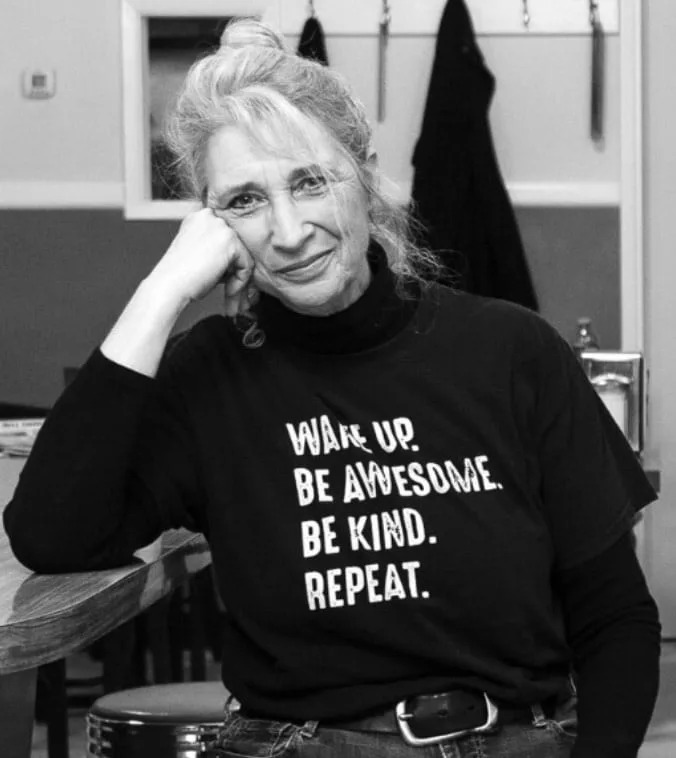CBC
Wed, October 11, 2023

Frontline worker Cassandra St. Germain was cut off two years earlier than expected from an Alberta program that supports youth aging out of care. (Cassandra St. Germain - image credit)
Failure to improve programs for Indigenous youth adults transitioning out of government care could cost the Canadian economy billions, warns a new report from the Conference Board of Canada.
In the recently released report, Empowering Indigenous Youth in Care as They Transition to Adulthood: Critical Actions for Philanthropy and Policy, researchers call on policymakers to rethink guidelines for eligibility "to ensure that youth get the support they need during critical life transitions."
"Children who spend time in care fall behind in various areas of well-being and development. These effects continue to limit their opportunities and outcomes long into adulthood, which together impact economic growth and incur costs on government," the report states.
"Age cut-offs are incongruous with developmental realities and do more harm than good. By expanding the criteria for program eligibility beyond age, policymakers can create more inclusive and effective programs for Indigenous youth."
Using two different economic modelling scenarios, the report projects revenue loss in areas including income tax, earnings, and social assistance payments.
"The report found that if investments weren't made in education, employment and mental health supports for Indigenous youth aging out of foster care over the next five years, it could cost the Canadian economy anywhere between $2 billion and $5.5 billion," said Amanda Thompson, report co-author and researcher.

Youth advocate Penny Frazier urged the Alberta government to reinstate full supports for youth up to 25 aging out of care. (Penny Frazier)
In Alberta, UCP government announced it would scale back the age of eligibility from 24 to 22 for the Support and Financial Assistance Agreements (SFAA) in 2019, though the policy wasn't implemented for a few years due to a court challenge.
The move cut off hundreds of Indigenous youth two years earlier than expected from benefits such as rent, day care and groceries while they finished school.
Edmontonian Cassandra St. St. Germain, 27, a frontline worker, who grew up in Alberta's foster care system, experienced cuts to the SFAA program first hand.
St. Germain had just turned 22 when she was informed by phone that she would lose her SFAA benefits two years earlier than expected.
Fortunately, said St. Germain, she was already working and had a good support system in place that equipped her with the skills many of her peers lack, to access resources that "are not actually as accessible and easy to navigate as they seem superficially."
"So it wasn't such a blow to me. But I know other people who have become homeless and have ended up on the streets because of [cuts to SFAA]," St. Germain said.
"What's really shocking to me is just seeing how young the faces are getting that are approaching us for help, and how little resources there are for it."
Investing more in Albertans exiting the child welfare system is essential, according to Penny Frazier, long-time youth advocate and editor of Zine & Heard, a monthly publication that amplifies the voices of youth in Alberta's child welfare system.
She points to the daunting odds former foster kids are up against — 200 times more likely to become homeless, and much more likely to struggle with addiction, and to be trafficked or sexually exploited.
The cut to SFAA sparked a legal battle that delayed changes to the program by more than a year.
As hundreds of SFAA participants lost their benefits, the province introduced the Transition to Adulthood Program (TAP) in 2022, touting it as a way to help more youth transition smoothly out of care.
Frazier says unlike SFAA, TAP does not provide support for rent, groceries, clothing, bus passes and day are. Also missing, said Frazier, is the ongoing relationship with a social worker, who can be like a parental figure for youth in care.
She urged the province to reinstate the full range of benefits up to the age of 25, noting British Columbia and Ontario have recently expanded their programs.
"That can make the difference between them attending school, getting a job, getting the help they need for their mental illness or for their addiction, for gathering those skills they need to live on their own," Frazier said.
The province has not yet provided comment to CBC News.
The report also found that strengthening education and mental health for Indigenous youth aging out of care across Canada could increase their total lifetime income by an estimated $1.1 billion.
"While youth in the general population typically benefit from family supports in their pursuit of a post-secondary education, youth aging out of foster care lose access to their supports," the report said.
No comments:
Post a Comment